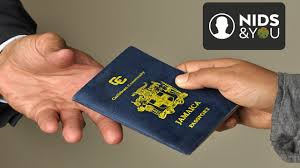By Andrew Clunis
It has been 21 years since the United Kingdom imposed a visa regime on Jamaica.
The decision meant that Jamaicans were no longer able to travel freely to the UK without satisfying more stringent immigration rules. At the time, the decision sent shockwaves throughout Jamaica and its British Diaspora. As formerly colonized people, Jamaicans, especially those born before 1962, felt a sense of belonging and kindred spirit to Great Britain.
Hundreds, if not thousands of Jamaicans went to Britain by invitation to work on the rebuilding of the country following the devastation wrought by Adolf Hitler’s Second World War. Known as the Windrush generation, those Jamaicans settled and accommodated the largely unencumbered relocation of family members and other loved ones for decades, until 2001.
Many Jamaicans who were denied access to the United States based on their social and economic status, chose Britain as a more viable option and they flocked to all corners of the “Motherland”. They worked hard and sent money back to Jamaica to build homes and take care of loved ones, akin to the vibrant remittance market today.
So it is easy to understand why Jamaicans were incensed when the visa regime was introduced. There were demonstrations outside the Jamaican High Commission in London. Over the past two decades there have been several discussions with the UK Home Office regarding a possible reversal of the visa imposition. Alas, these have been to no avail and frankly any further conversation on the matter would be like the proverbial “wasting powder on blackbird”.
Britain no longer welcomes, wants or needs Jamaicans like it used to.
I remember interviewing former Foreign Affairs Minister KD Knight at the Jamaican High Commission in London shortly after the new rules took effect. I asked him about the Jamaican government’s official response to the visa regime and whether it was temporary, with a possible reversal on the cards. He replied with an emphatic ‘No” and went on to say that Jamaicans had brought it onto themselves and were facing the consequences.
And he was not wrong – he could not have given a more candid answer.
A large majority of Jamaicans in the UK are just a big disgrace to their country and themselves. We can’t detract from the community of progressives that have made good on their opportunities in the UK and have excelled at all levels of society. But even those progressives have become so disenchanted with the wider Jamaican community that they distance themselves from their own communities and identify with mainstream Britain. They are not to be blamed.
While our sports and our music speak loudly and proudly in British society, our penchant for violence, drug dealing, racketeering and general disregard for the rule of law has been a sickening characteristic for decades.
So the imposition of the visa regime was simply a case of the chickens coming home to roost. While there were important seminal protests in the 1980s against institutional racism and injustice in the British society, of which Jamaica was at the forefront, over the years such noble acts were denuded and reduced to flagrant lawlessness on the streets of places like Brixton, Tottenham, Harlesden, Moss Side, St. Paul’s, parts of Birmingham and other areas. Subsequent generations adopted the worst features of Jamaican culture and reduced hitherto prosperous communities to ganglands and ghettoes. And black/Caribbean communities are still feeling the impact today.
At the time that the visa regime was imposed, Jamaicans accounted for the second largest number of non-whites in UK prisons, topped only by Nigerians.
There has been an increase in deportations in the last 20 years and based on the crime stats and the realities on the ground, it could be argued that the British government is justified. Perhaps they cross the line of reasonableness when they deport persons who went there as children and have been settled for 40 and 50 years. They should be Britain’s problem as that would have been where they spent their formative years and developed their subsequent criminal enterprise.
Jamaica has learnt nothing from its relationship with Britain over the last 20 years. The country has become more violent, corrupt and a stain on the Caribbean and the wider region.
Imagine Britain lifting visa restrictions for Colombia, Peru and Guyana, of which only Guyana is former colony, while no consideration is being given to Jamaica. It is a sad reflection on the country.
You see, the British immigration authorities are quite aware that should they give Jamaica a pass, there would be such an untenable rush on their high commission they, would have to call the whole thing off. Lines would stretch from Trafalgar Road, past Fontana and Mega Mart to Shortwood Road. A majority of Jamaican citizens are desperate to leave the country – by any means necessary, even via the Mexican Coyotes and drug tunnels. The effects of crime, an anemic economy, corruption and the resultant social decay threaten to turn what was once paradise into a banana republic.
One can understand the lifting of restrictions for Guyana, what with their new-found oil propelled prosperity. But Colombia and to a lesser extent Peru? These are cocaine producing countries and Colombia has the largest and most sophisticated criminal networks in the world through the cartels. Is Britain prepared for the consequences of their decision?
One thing is sure, if the UK prefers to accept Colombians over Jamaicans, these are dire days for our country.
Send your feedback and comments to
Like, follow and share @jamaicatimes ja
Facebook: Jamaica Times Newspaper

